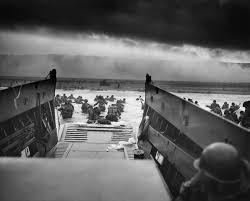Understanding D-Day: Its Historical Significance and Legacy

Introduction
D-Day, commemorated on June 6 each year, marks one of the most significant events in 20th-century history—the Allied invasion of Normandy during World War II. Recognized for its strategic importance, D-Day represents not just a military operation but a decisive turning point in the war against Nazi Germany. As we reflect on its legacy, it reminds us of the sacrifices made for liberty and peace, making it a vital topic for discussion and remembrance in contemporary society.
The Events of D-Day
D-Day was the largest amphibious invasion in history, with over 156,000 Allied troops landing on the beaches of Normandy, France, on June 6, 1944. The operation involved meticulous planning, extensive deception tactics, and coordination between multiple nations, including the United States, Canada, and the United Kingdom. Key operations included air assaults, naval bombardments, and the deployment of paratroopers, which were critical to securing strategic positions.
Historical records indicate that the invasion began at around 06:30 local time, with forces hitting five beachheads—Utah, Omaha, Gold, Juno, and Sword. Each landing faced unique challenges, but the Allies’ tenacity and preparation ultimately led to the establishment of a foothold in Europe. By the end of the day, thousands of troops lost their lives, underscoring the grave risks taken to liberate Europe from tyranny.
Commemoration and Impact
Every year, D-Day is marked by ceremonies and memorials around the world, with prominent events taking place at sites like the Normandy American Cemetery, where visitors pay their respects to the fallen. In 2024, which marks the 80th anniversary of D-Day, major commemorative events are planned, drawing attention to the continuing significance of the day and its lessons for future generations.
The legacy of D-Day extends beyond its military achievements. It symbolizes the resilience and collaboration of nations united in the fight against oppression. In reviewing this history, we reflect on the values of courage, sacrifice, and international cooperation that continue to be relevant as new global challenges arise.
Conclusion
D-Day remains a profound historical event that not only altered the course of World War II but also serves as a poignant reminder of the costs of war. As we approach significant anniversaries, the lessons learned from D-Day serve as both a tribute to those who fought and a call to uphold the ideals of freedom and democracy. The collective memory of D-Day ensures that the sacrifices made will not be forgotten, serving as a beacon for future generations to cherish and protect the liberties hard-won.









